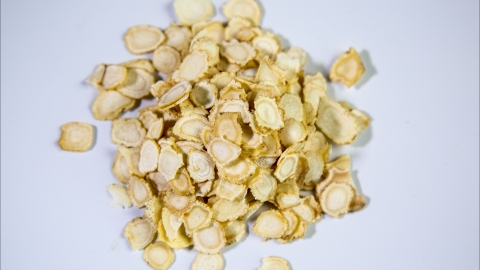What type of ginseng should be consumed to tonify physical weakness and yin deficiency?
For deficiency of both qi and yin, suitable ginseng varieties generally include American ginseng, forest-cultivated ginseng (lightly processed), white ginseng (sun-dried ginseng), transplanted wild ginseng, and ginseng whiskers. Detailed analysis is as follows:

1. **American Ginseng**: Slightly cool in nature with a sweet and slightly bitter taste, American ginseng is the core choice among ginseng types for individuals with yin-deficient constitutions. It not only replenishes qi to relieve physical fatigue but also nourishes yin, clears internal heat, generates body fluids, and quenches thirst, without aggravating internal heat due to yin deficiency. It is suitable for those experiencing both qi deficiency and symptoms such as dry mouth and throat. It can be sliced and steeped in water or ground into powder for oral consumption.
2. **Forest-Cultivated Ginseng (Lightly Processed)**: This type of ginseng has a mild nature. After light processing, its drying and heating properties are reduced while retaining its ability to tonify qi and nourish yin. It helps nourish primordial qi and enrich yin fluids, improving symptoms such as dizziness, blurred vision, and low energy caused by combined qi and yin deficiency. It is best used in soups or combined with other yin-nourishing ingredients.
3. **White Ginseng (Sun-Dried Ginseng)**: Made by directly sun-drying fresh ginseng, white ginseng has a neutral to slightly cool nature. It possesses both qi-tonifying and yin-nourishing effects, helping restore vital energy in cases of deficiency while simultaneously replenishing yin fluids. It effectively relieves discomforts such as dry mouth and fatigue caused by yin deficiency. It can be consumed by chewing slices, adding to porridge, or boiling for tea.
4. **Transplanted Wild Ginseng**: With a balanced and gentle nature, this ginseng replenishes qi without causing excessive heat and nourishes yin without creating dampness or stickiness. It is ideal for individuals with yin deficiency accompanied by general weakness. It supports both strengthening of primordial qi and nourishment of yin fluids, alleviating symptoms like fatigue, palpitations, and insomnia. It is commonly stewed in soup with herbs such as Ophiopogon (McDoor) and Solomon's seal (Jade Bamboo).
5. **Ginseng Whiskers**: These fine roots have a very mild nature. Although their potency in tonifying qi and nourishing yin is less than that of the main root, they possess minimal drying or heating effects, making them suitable for individuals with mild qi and yin deficiency. They gently supplement vital energy and nourish yin fluids, relieving mild symptoms such as fatigue and dry mouth. They can be steeped in water, brewed as tea, or added to congee. They offer high cost-effectiveness and broad applicability.
When using ginseng to treat deficiencies of both qi and yin, strongly warming types such as red ginseng should be avoided. First-time users should start with small amounts to monitor any signs of heat or overstimulation. Ginseng can be combined with yin-nourishing foods such as tremella fungus and lily bulbs to balance its properties.






